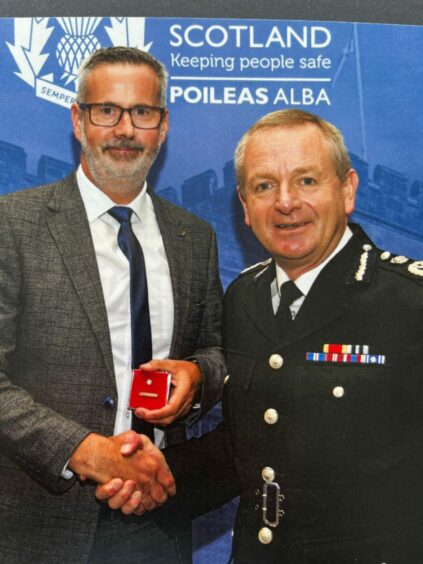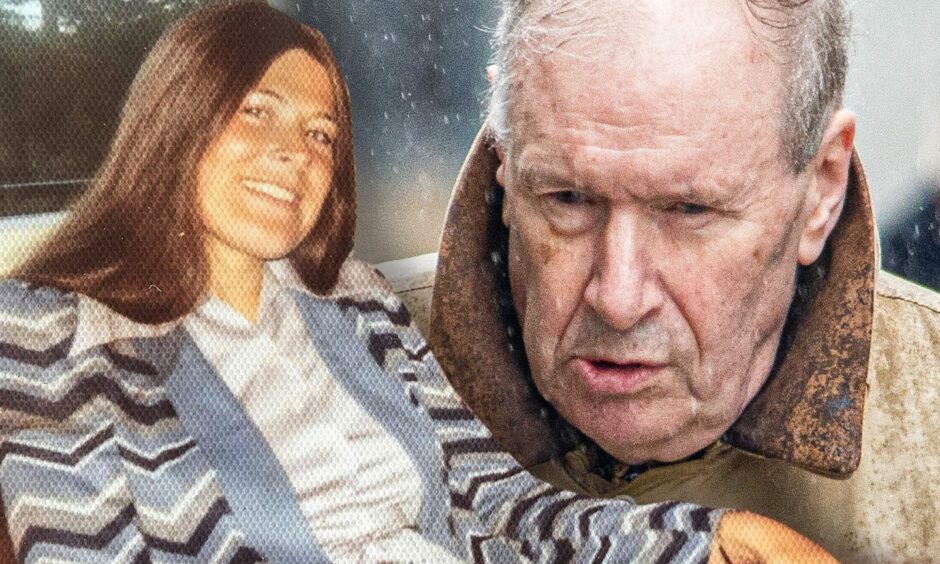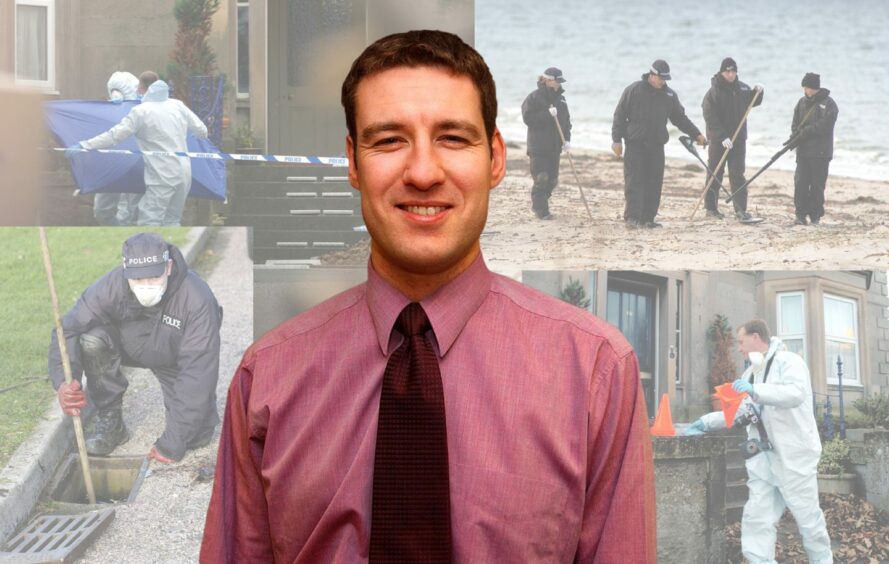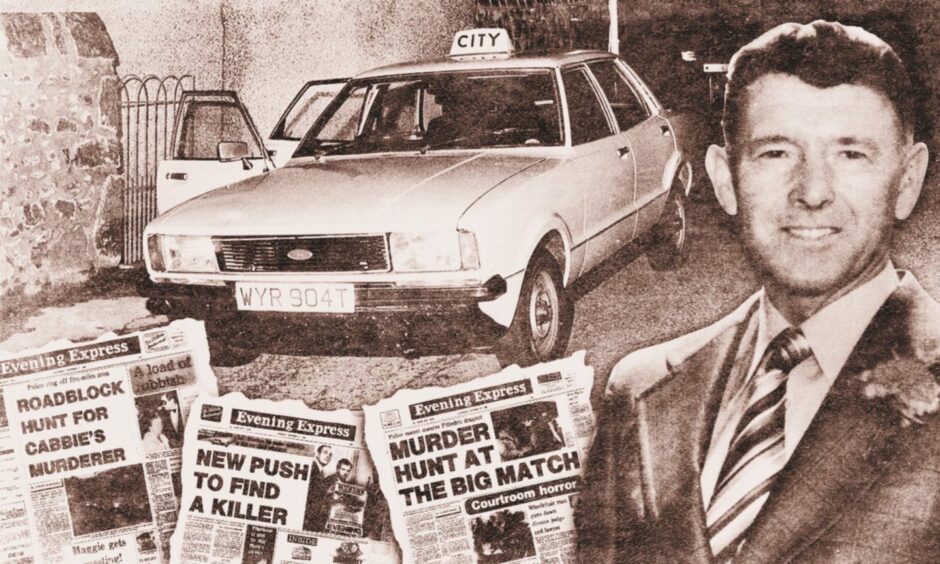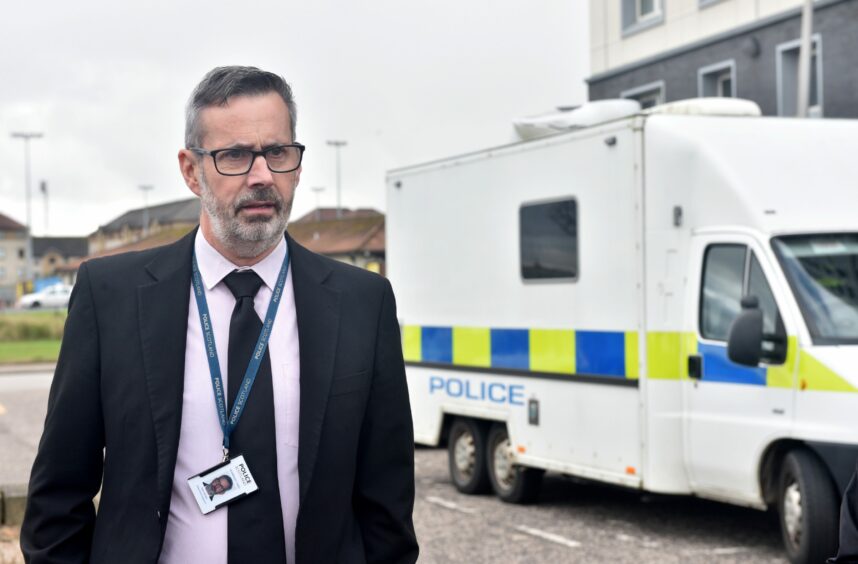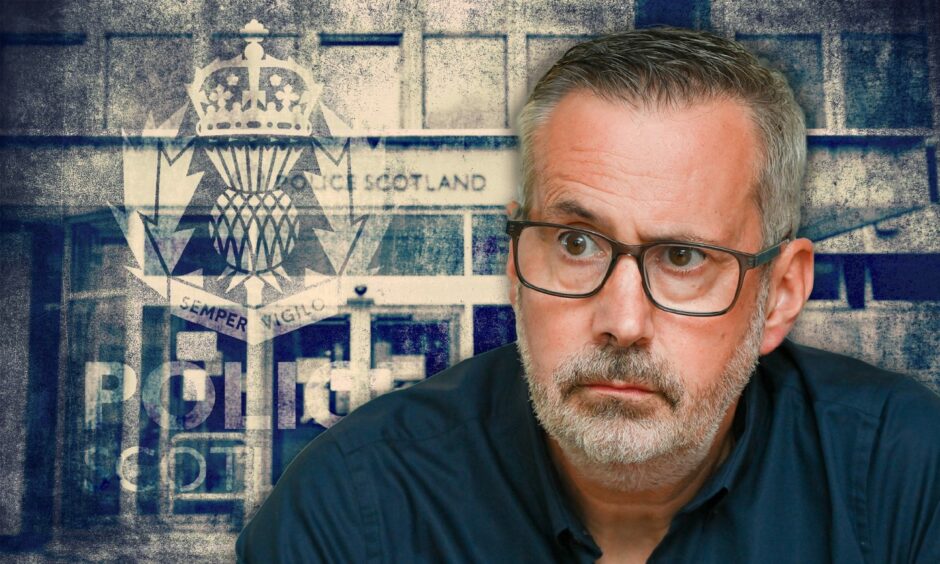
The region’s unsolved murder investigations shouldn’t suffer as a result of any future budget cuts, a retired senior detective has warned.
Detective Inspector Gary Winter, who dedicated 30 years of his life to policing, said cracking the cases is “too important” to victims’ families and communities.
In an exclusive ‘exit interview’ with The Press and Journal, the 52-year-old spoke of his concern that the police probes might suffer as the authorities try to balance budgets.
“I hope that both Police Scotland and the Crown Office and Procurator Fiscal Service (COPFS) continue to allocate time, effort and resources to unsolved homicides,” he said.
“They are too important to the affected families and communities to ignore.”
The former detective said that his strong desire to get victims justice had led to successfully concluding many major crime inquiries during his career.
Most recently, his team solved one of Scotland’s longest-running murder investigations, the brutal bludgeoning of Dr Brenda Page in July 1978.
The 32-year-old scientist was beaten to death in her Aberdeen flat on Allan Street by her abusive and controlling ex-husband.
Christopher Harrisson, 82, was convicted on March 9 this year and sentenced to life in prison for a minimum period of 20 years before he would be eligible for parole.
“There was no mystery,” Mr Winter said. “Everything pointed to him. All the circumstantial evidence was there.
“But there was clearly less of an appetite for a circumstantial court case 45 years ago.
“The initial difficulty of prosecuting Harrisson then was the feeling that he couldn’t be placed inside Brenda’s home at the time of the incident.”
‘If you never have a trial you’re never going to give it a chance’
In 2015, Lord Advocate Frank Mulholland – Scotland’s senior law officer in charge of the COPFS at the time – ordered a reinvestigation of the unsolved case.
Mr Winter described Lord Mulholland as “bullish” and “very positive about cold cases”.
But when he left his post, the change at the top became a fresh obstacle.
“By that point, you have a whole new group of people at the Crown Office,” Mr Winter said. “The Lord Advocate had moved on and we then have to persuade all these new people.
“Sometimes you get other people who come in and are much more cautious and don’t want the reputational risk of a not guilty verdict.
“My own view is, if you never have a trial you’re never going to give it a chance.”
Prior to the long-awaited high-profile court case earlier this year, detailed forensic work detected Harrisson’s sperm on Dr Page’s duvet.
However, scientists could still not confirm whether it was “incident specific” – deposited at the time of the deadly attack on Brenda, Mr Winter explained.
‘Better time for circumstantial cases, better prosecutors’
“It’s easy to just say you don’t have enough evidence. It’s more difficult to say, ‘I’ll take a risk on it and see how it goes’.
“We are in a better time now for circumstantial cases. We’ve also got some better prosecutors.
“Some advocate deputes have a greater appetite for the challenge of putting forward a compelling story to the jury,” Mr Winter added.
He revealed that television programme makers have filmed him for a documentary about the landmark case to be aired on Channel 5 later this year.
The episode will form part of the third season of Cold Case Killers.
Another episode will re-tell the story of Shamsuddin Mahmood, an Orkney waiter who was fatally shot in the head in June 1994.
Cases he never got solved
Looking ahead to his future, Mr Winter, a dad-of-three, said: “I’m exploring the possibility of setting up in business as a private investigator.”
And he also pledged to “continue to support” the grieving families and investigations into the unsolved murders of Alistair Wilson – the 30-year-old Nairn banker shot dead on his Crescent Road doorstep in November 2004 – and Aberdeen taxi driver George Murdoch.
Mr Murdoch, 58, was viciously garrotted with a cheese wire by a passenger on Pitfodels Station Road, Cults, almost 40 years ago in September 1983.
“Both murders are live investigations,” Mr Winter said. “They’re still worked on, on a daily basis. I believe both are solvable and am hopeful they will be solved.
“The police only know what they are told, so, please don’t assume they know the information you hold. It’s your civic duty to pass it on and try to help the bereaved families.”
Mr Winter joined Grampian Police on May 4 1993, beginning with his two-year probation as a uniformed Police Constable in Banff.
He was later stationed in Peterhead, joining the Criminal Investigation Department (CID) as a plain-clothes Detective Constable.
Other areas he covered included Fraserburgh and Mintlaw at times.
“There was a lot of drugs-related work,” he said. “There still is.”
Between 2003 and 2009, Mr Winter worked for what became known as the Scottish Crime and Drug Enforcement Agency (SCDEA).
The cross-border force was staffed with officers from various legacy constabularies who came together to tackle cross-border organised crime.
In 2005, he was promoted to Detective Sergeant.
Mr Winter returned to uniformed roles in the city of Aberdeen under Grampian Police in 2009 but quickly returned to CID covering the Tillydrone area of the city.
He embarked on his most well-known work after joining Police Scotland’s Major Investigation Team as a Detective Inspector in late 2015, based in Aberdeen.
For all the latest court cases in Aberdeen as well as crime and breaking incidents, join our Facebook group.
